Airbnb, Vrbo laws could bring legal battle, county attorney and rental advocates say
ASHEVILLE - The Feb. 19 Buncombe County Planning Board meeting on possible forthcoming short-term vacation rental regulations aimed to hash-out the specific legal language for the ordinance, which could ban the practice in parts of the county.
However, the meeting also led to a conversation about the county possibly facing legal trouble if they pass regulatory measures.
County Attorney Curt Euler did not mince words when discussing one of the proposals, which was in regard to deed restricting the practice.
"The county is going to get sued," Euler said during the meeting. "I think regardless of what we do, one way or the other, we will get sued."
Lawsuits against North Carolina municipalities that pass regulations against STRs — commonly referred to as Airbnbs — have not been uncommon.
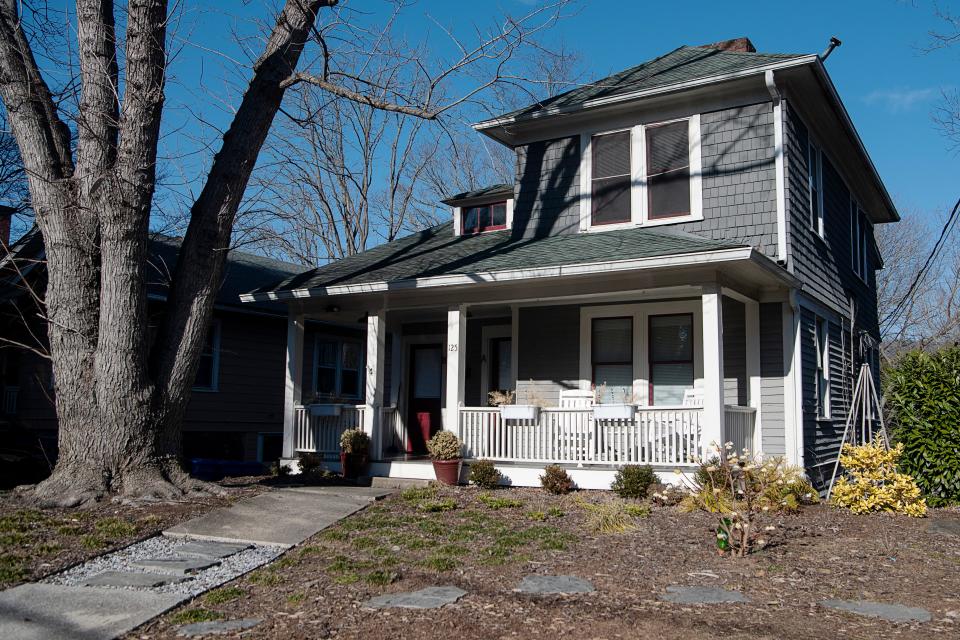
In 2019, the North Carolina Court of Appeals ruled the city of Wilmington was violating state law by maintaining a registration system for its short-term rentals. Wilmington lost a total of $500,000 in taxpayer money after their ordinance was found to be illegal, according to the Wilmington Star News.
Local planning and zoning statutes were consolidated by the North Carolina General Assembly in 2019, where the new chapter — 160D — lacks specific language regarding short-term rentals and has no established case law.
"In the absence of specific language in 160D, the Schroeder decision is the best metric available to local governments seeking to regulate short term rentals," Planning Director Nathan Pennington told the Citizen Times Feb. 19.
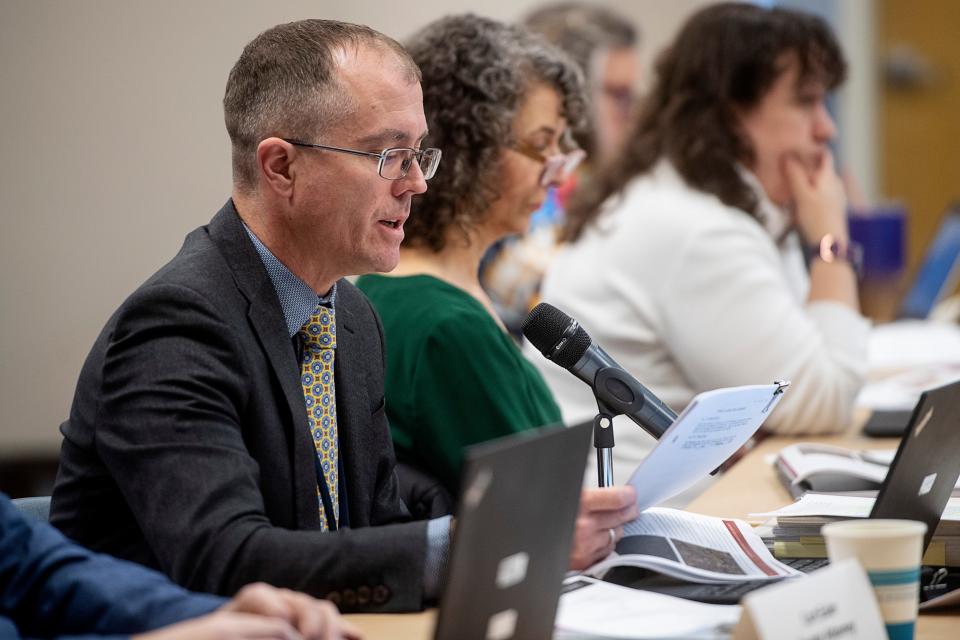
Nearly the size of the hotel economy, STR laws need precise language
The mention of possible lawsuits came up during discussion of a grandfathering rule proposed by county staff.
Highlighted as the most "legally risky" move provided by planning staff, the proposal would have ended the grandfather status for an STR once the deed for the home is transferred.
Planning Board discussion led to the rule not being included in ordinance language, where Planning Board member John Noor noted the difficulty of regulating through deed transfer, a process that wouldn't capture those who transfer property through inheritance or through a company.
As for why ordinance language is highlighted, Euler noted the county needs to be aware of possible legal arguments.
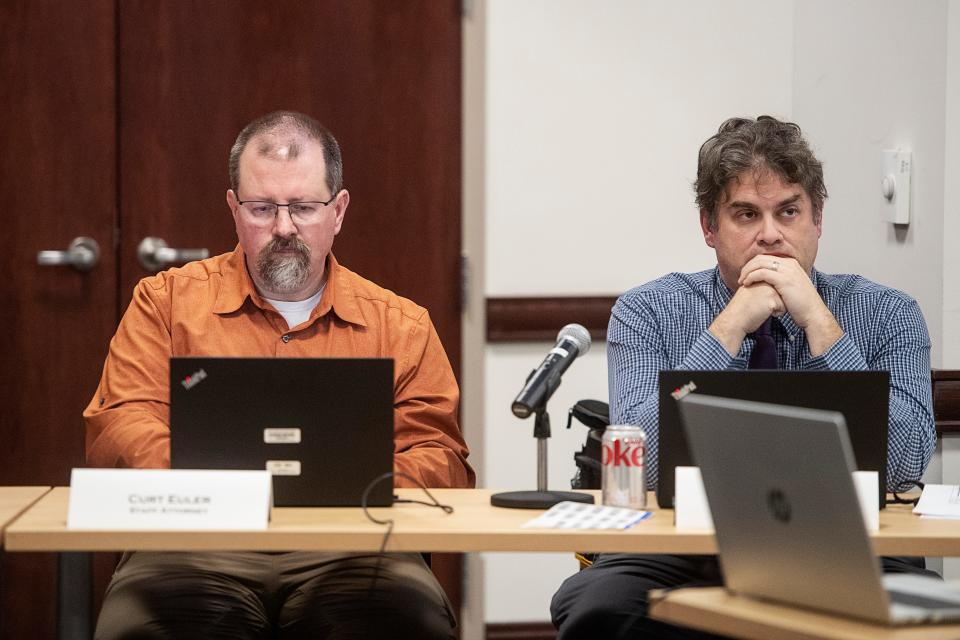
"I think what we really would like to do is try to minimize the number of arguments," Euler said of possible lawsuits during the meeting.
Board Member Tim Collins questioned whether the objective of the planning board should be to fully regulate STRs or to "stop or slow the growth" of the practice.
In the two most recent fiscal years, the demand for vacation rentals increased by over 161,000 — approaching nearly 2 million nights rented, according to AirDNA data released by the Buncombe County Tourism Development Authority.
"There's a reason why legislation is supposed to take a long time and so you don't make rash decisions," Collins said. "Grandfathering in perpetuity seems like a conservative way to deal with the situation."
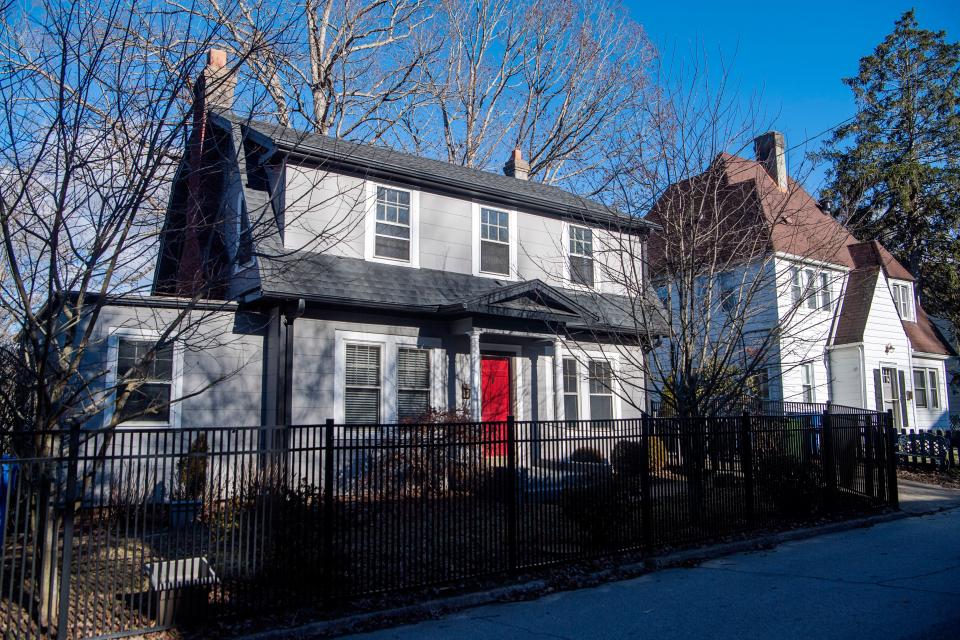
County aims to regulate for housing supply
While the past ten years have seen a number of steps by the city of Asheville to curb the tourism industry's effects on development and cost of housing — including banning the practice of short-term vacation rentals and a temporary moratorium on hotel development — the county has been slower to step in.
One of the primary goals of the proposed short-term rental regulations has been to address the deepening housing crisis in the region, where demand has far out-paced supply.
"Regulating short-term rentals will help reduce the loss of overall housing supply at all price points to help address the housing shortage," Phillips said during the meeting.
In a breakdown of properties listed as "investment opportunities" on AirDNA, county strategy and development staffer James Shelton noted a majority of those homes would be affordable for a family of four earning the Asheville-Buncombe area median income, which was reported to be $90,300.
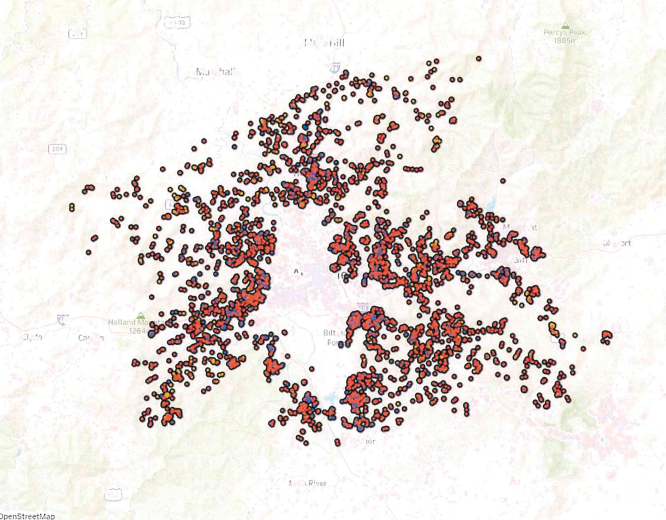
Will it make a difference?
Planning Board Chair Nancy Waldrop noted that some had said they likely wouldn't flip their homes for sale or as long-term rentals.
"Based on what I've heard from the public is a lot of people are saying they won't put their short-term rentals on the market either as a long-term or for sale," Waldrop said during the meeting.
Owner and founder of Greybeard Realty and Rentals, Chip Craig said that while he wouldn't file one himself, there have been plenty of conversations of possible lawsuits.
Craig is the chair of the STR Trust, a local short-term rental alliance that is against many of the proposed regulations.
Greybeard manages over 700 properties between Buncombe and Asheville, over a third of which are vacation rentals. Many people listing Airbnb's are second homeowners, which may make the AirDNA data driving county decisions confusing or misleading, Craig said.
"[AirDNA doesn't] know the difference between a owner staying there or guest staying there, or a maintenance hold, or somebody winterizing their house," Craig told the Citizen Times Feb. 20.
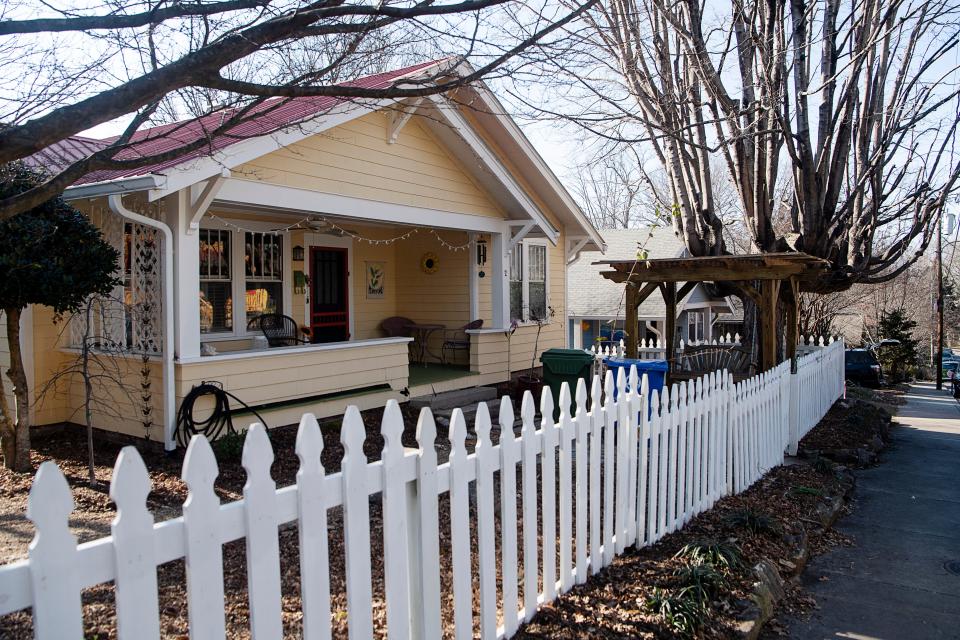
As for what could happen in the county, regulatory examples may already be playing out within Asheville city limits. The city banned STRs in 2018.
Two Greybeard vacation rentals listed within Asheville's city limits — located on a block between Flint Street and Woodlawn Avenue — are conforming to city rules by renting for a whole month as vacation rentals on the Greybeard Rentals website rather than just for a few days.
While not available as year-long leases and not posted on Airbnb, the listings could represent a trend of short-term rentals converting to month-to-month rentals as second homeowners look to visit or, eventually, retire. Both homes are owned by out-of-state residents, according to the most recent Buncombe County Tax Record information.
"In the ripple effect that plays out what's gonna happen is we're gonna have fewer and fewer short term rentals. Over time, because people retire to these homes or sell them all, we're gonna have less places for people to stay," Craig said.
Yet, those who play by the rules — by falling into by month-to-month regulations — are also matched by examples of illegal listings, which have been active for over two years, but didn't see much regulatory action during that time, as reported by the Citizen Times.
In a brief submitted to the Planning Board Feb. 5 meeting packet, the STR Trust highlighted some of its worries on regulation.
"The existing shortage of enforcement agents to handle current ordinances and regulations raises concerns about the feasibility of enforcing these additional burdensome regulations," the brief submitted to a Feb. 5 meeting said.
"The potential legal battles that could ensue cannot be overlooked, with the case of Wilmington serving as a prime example."
What do the discussed regulations look like?
A summary of the proposed amendments to short-term rentals includes limiting the use of dwelling units for certain zoning districts, reducing the maximum gross floor area for an STR and the development of a zoning permit process, which would allow pre-existing STRs to remain in operation. Here are some of the proposed amendments:
Limit the use of short-term rentals and grouped complexes of STRs to commercial zoning districts, where grouped complexes would have to seek a Special Use Permit.
Change the definition of STR to allow only single-family detached units to be rented short-term and clarify that the definition includes those that are rented for a minimum of two days and no more than 30 days.
Require the rental of units for two nights every 180 days to maintain legal status of pre-existing STRs.
Prohibit short-term rentals in Manufactured Home Parks.
Create Special Requirement standards for short-term rentals in commercial areas, including parking, spacing and event limits.
A full list of the discussed short-term rental regulations and meeting video can be viewed at engage.buncombecounty.org/buncombeplanningboard.
When will the Planning Board meet again?
The Buncombe County Planning Board is continuing to hash-out what STVR regulations might look like. More work session dates and two additional public comment sessions have been proposed.
Here's when they plan to meet:
Planning Board work session to review proposed ordinance changes: 9:30 a.m. March 4 in the Commissioners Chambers at 200 College St.
Planning Board listening session: Time TBA at ABTech.
Planning Board Finalizes ordinance language: 9:30 a.m. April 1 in the Commissioners Chambers at 200 College St.
Planning Board listening session: Time TBA at ABTech.
More: West Haywood Street: 41 deeply-affordable apartments breaking ground in WECAN
More: West Asheville breakfast spot to be sold; Property for rent, Cascade Lounge hoping to stay
Will Hofmann is the Growth and Development Reporter for the Asheville Citizen Times, part of the USA Today Network. Got a tip? Email him at WHofmann@citizentimes.com. Please help support this type of journalism with a subscription to the Citizen Times.
This article originally appeared on Asheville Citizen Times: Airbnb, Vrbo laws will likely bring legal battle, county attorney says

